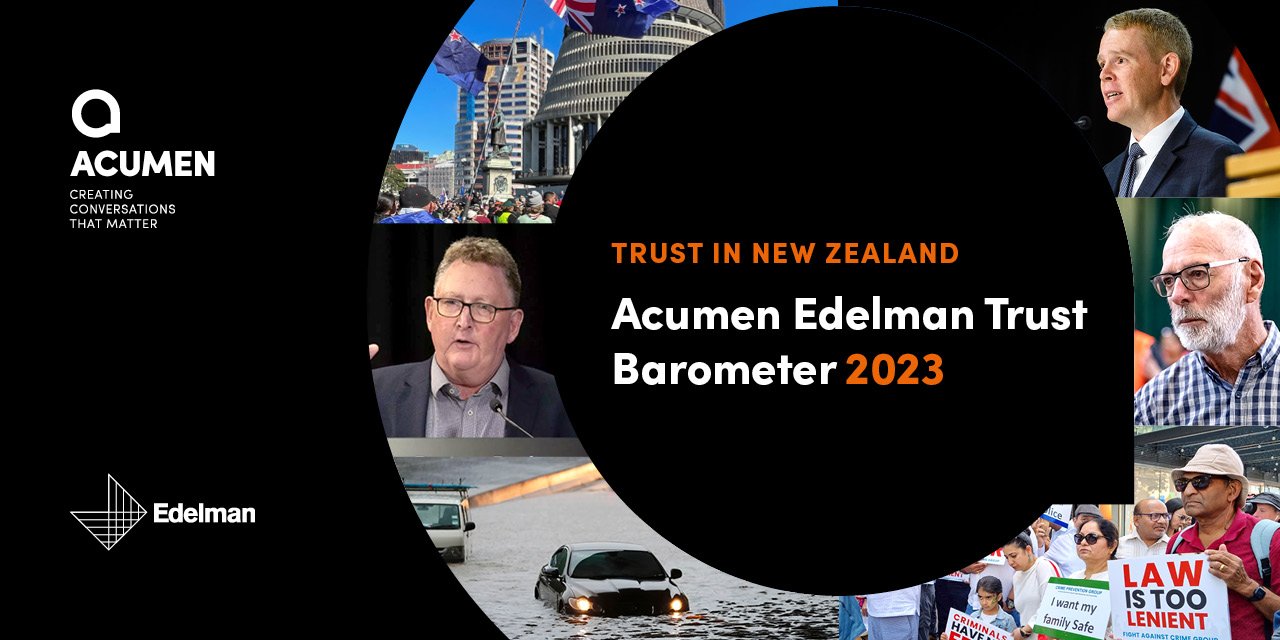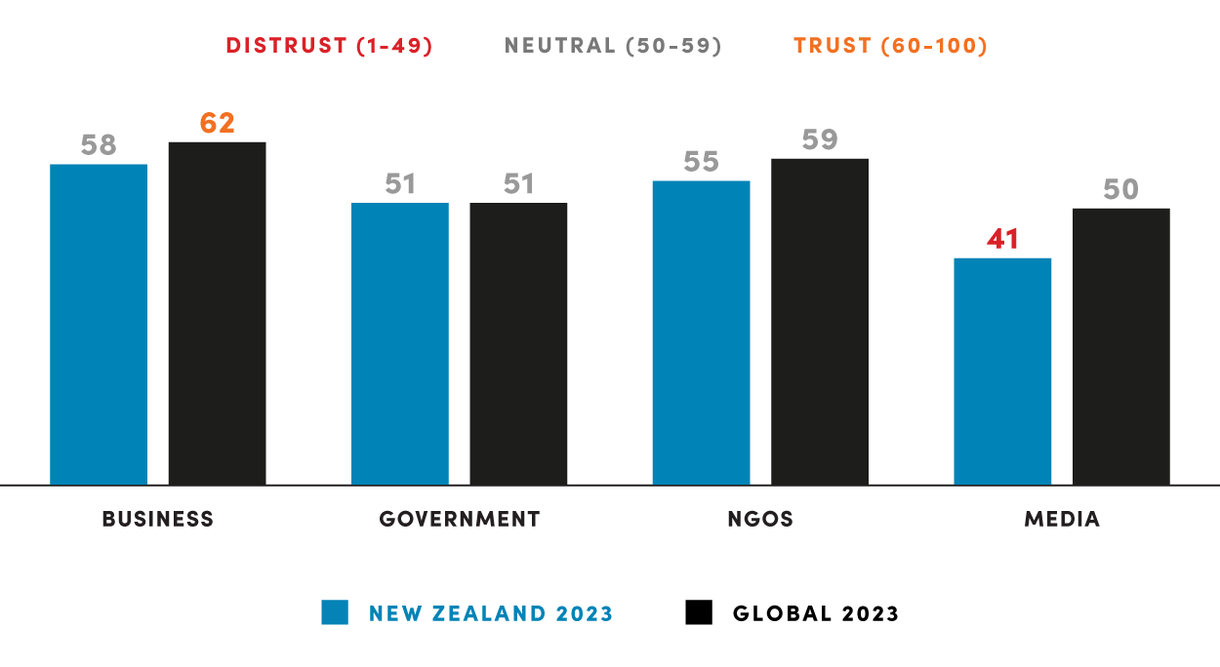
Acumen Edelman Trust Barometer 2023
As brands and organisations seek to build trust and protect their social licence to operate, the Acumen Edelman Trust Barometer provides useful insights around local sentiment and what drives trust. For the first time this year, no major institution, including Business, Government, NGOs and Media, is trusted in Aotearoa New Zealand.

‘My employer’ still stands out in the trust stakes
Business dropped three percentage points to 58, shifting it from trusted into the neutral category, joining NGOs (55) and Government. That said, Business remains the only institution seen as both competent and ethical, and 78 percent of people trust their employer bringing both responsibility and opportunity.
Trust in Government and Government leaders declines
We’ve seen trust in Government drop 6 percentage points this year. While in line with the global average, New Zealand has historically bucked the trend with higher levels in trust in Government. Trust in Government leaders has declined by five percentage points, shifting from the neutral category to distrust.
Trust in media stubbornly low and fuelling distrust
Trust in social media remains very low in New Zealand (41), and is among the lowest in the world, possibly exacerbated by growing concerns around mis- and disinformation. Trust varies according to information source.
In terms of sources of trusted information, traditional media is still the most trusted in New Zealand (56) closely followed by search engines (up 6 percentage points to 55). Owned media – such as websites, annual reports, newsletters – are more trusted than social media. Worryingly, Media is seen as a source of false or misleading information more than a reliable source of trustworthy information, which can fuel further distrust.
Experts and people like me are more trusted
Scientists are the most trusted in New Zealand. The visibility of this group in mainstream media has increased significantly in the context of major events such as the pandemic and recent floods and people are seeking informed, expert opinion. Where people have a direct relationship they are more likely to trust – co-workers, my neighbours, people in my community and citizens in my country are far more trusted than CEOs or journalists.
Economic anxieties undermining trust
So why are we experiencing this decline in trust? A big part of it is that economic optimism is at all-time lows.
In Aotearoa New Zealand, two-thirds of people do not feel that they and their families will be better off in five years’ time (up 7 percentage points). There is also a significant 12-point gap between those on higher and lower incomes, with the latter distrusting institutions.
A trust divide is being exacerbated by inflation and cost of living. People on the lowest incomes are really feeling it and there is an increasing sense of inequity. Rebuilding trust in such a challenging environment isn’t easy.
Distrust is contributing to polarisation
Higher levels of distrust globally are leading to increased polarisation among communities.
Our research categorises Aotearoa as ‘moderately polarised’. This means we are moderately divided on key societal issues although we are able to work through or overcome ideological divisions. Yet 60% of people believe Aotearoa New Zealand is more divided today than in the past. Distrust, lack of shared identity, views around systemic unfairness and economic pessimism are significant drivers of polarisation.
Navigating a polarised world
Business has a significant role to play in restoring economic optimism and social cohesion. The growth and success of business, paying fair wages, paying fair taxes, retraining employees and contributing to the local community will help rebuild trust.
People want leadership from business across climate change, diversity and inclusion, skills and training. We often hear concerns around business ‘staying in its lane’ and worries about how to speak to societal issues without getting politicised. It’s possible. Having an authentic and credible position and narrative, along with sensitivity to tone and manner, is essential.
Providing quality, reliable information to support healthy debate, offering potential solutions and collaborating effectively with Government and NGOs to conceive and deliver initiatives makes a difference.
In this environment it is easy to be reactive and focus on mitigating risk. While that’s important, Acumen is a big believer in being bold and leading from the front. Opportunity is a watchword for hope – let’s find and create more of them.
If you’d like to have a conversation around how to protect and build trust for your organisation or brand, then please get in touch.
Want to know more about Trust in Aotearoa? Click here to request your copy.
